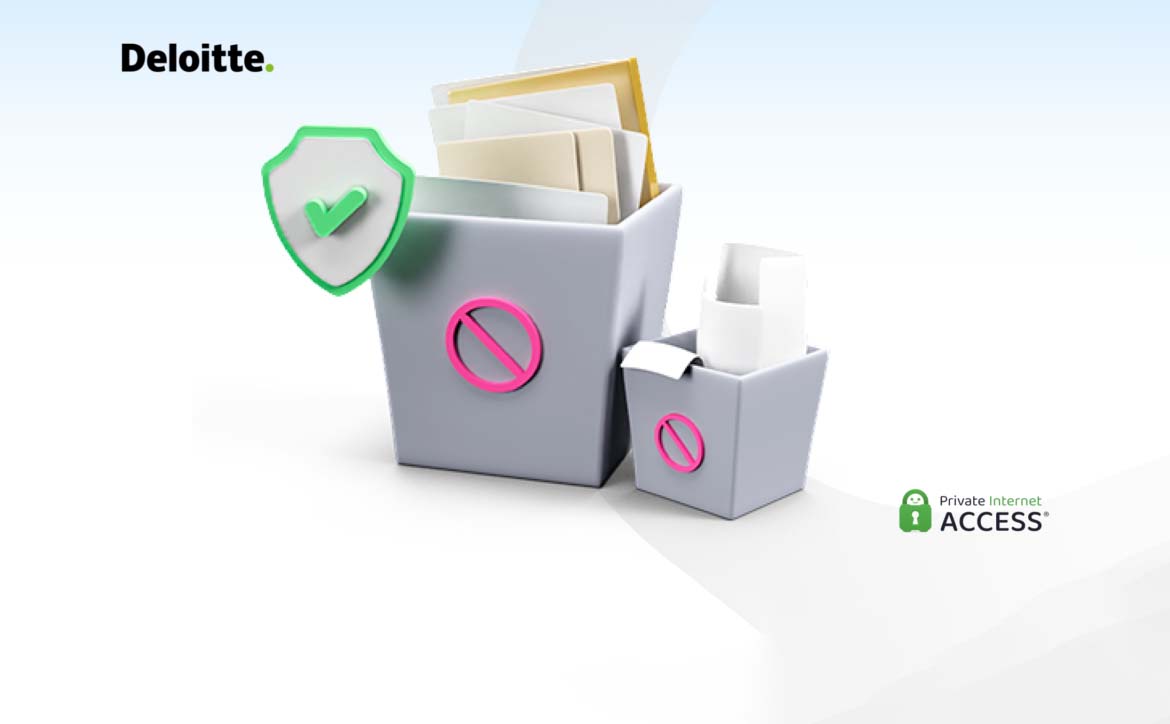When choosing a VPN (Virtual Private Network), there are a lot of things to consider. One of these is a No Logs Policy, something that many — but not all — VPNs claim to have. PIA (Private Internet Access) is one popular VPN with a No Logs Policy. The company recently invited Deloitte to review its network and management systems, which confirmed the company does indeed store no logs or details that can be used to identify users or activities.
DISCLAIMER: I have been a paying user of PIA for a few years now.
PIA’s headquarters is located in the U.S., a cause of concern given privacy laws and the court system, the company claims to never retain any metadata and, as a result, never have any data to share with authorities when requested. To prove this claim, the company hired Deloitte to examine how they maintain a No Logs Policy with their VPN service. The audit found that, as of June 30, 2022, PIA’s server configurations are not designed to identify users or pinpoint their activities.
Given that servers are generally powered by physical drives, and backed up in case of outages or data loss, how does PIA achieve this? Simply put, the company’s VPN service runs on RAM-only servers.
“These servers boot on a read-only image and use RAM modules, as opposed to hard disks. Hard disks are traditionally used as storage, whereas a RAM-only environment is more volatile. We also configured our servers to routinely reboot. With every reboot or power outage, all data is immediately deleted.
“We designed our network architecture specifically to prevent data retention. We have no user data, and we can’t be compelled to share information on our users – in fact, the US government can’t force US-based VPN providers to violate a zero-log policy because of consumer protection laws.”
PIA
Going even further, the company has even disabled error logs and debug information on its servers to help prevent third parties from hacking its systems. Its source code is also available for anyone to inspect or analyze, and the company pulls servers from countries (like India) that enact mandatory logging laws.
What does this mean for you, as a user? If PIA is ever subpoenaed in court, as they have been multiple times for logs, they have no data to share and thus your privacy and anonymity are guaranteed. A full copy of the report is available for download as well.
PIA costs as little as $2.03/month on a new plan ($79 for three years), or $11.95/month on a month-to-month plan. The service works on Windows, Mac OS, Linux, Linux ARM, Chromebook, Android, and iPhone/iPad. You can also set up Smart DNS for Chromecast, Apple TV, Roku TV, other Smart TVs, PlayStation, and Xbox to further protect yourself. PIA VPN also comes with a 30-day money-back guarantee if you’re not satisfied.
Does your VPN have a No Logs Policy that has been independently verified? If not, will you be switching to one like PIA? Let us know on social media by using the buttons below.
In some of our articles and especially in our reviews, you will find Amazon or other affiliate links. As Amazon Associates, we earn from qualifying purchases. Any other purchases you make through these links often result in a small amount being earned for the site and/or our writers. Techaeris often covers brand press releases. Doing this does not constitute an endorsement of any product or service by Techaeris. We provide the press release information for our audience to be informed and make their own decision on a purchase or not. Only our reviews are an endorsement or lack thereof. For more information, you can read our full disclaimer.










